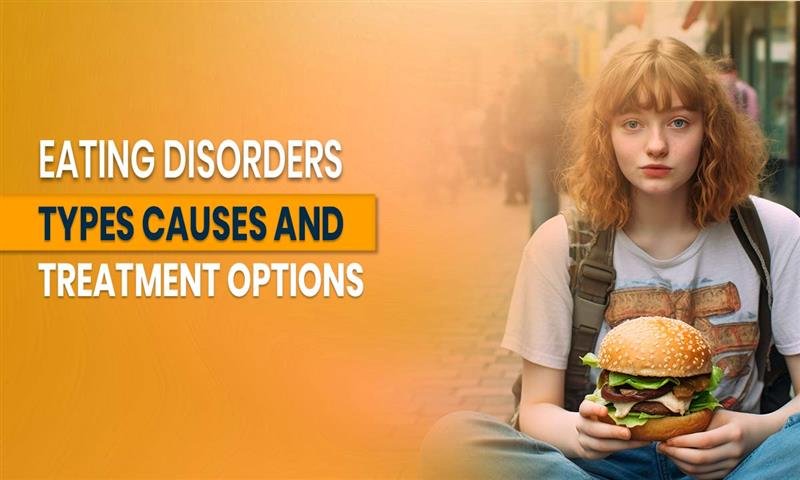
Understanding the Problem and Finding the Solution
If you’re struggling with binge eating disorder or suspect you might be, you’re not alone. Binge eating disorder symptoms often appear when emotional distress is left unchecked, and food becomes a way of coping. Whether you’re someone who eats large amounts of food in short periods, feels out of control during episodes, or experiences feelings of guilt afterward, these symptoms are serious. The good news? There is hope, and a structured approach can help you get back on track.
Today, we’re diving deep into binge eating disorder, its causes, and the treatment options available. Whether you’re seeking advice for yourself or a loved one, stick with us, and we’ll help you navigate the journey to recovery with knowledge and support.
If you feel that your addiction to food is getting out of hand, don’t panic. Athena Luxus is here to support you through every step of the process, offering luxury treatment and a comprehensive mental health program tailored to your needs.
What is Binge Eating Disorder?
Binge eating disorder (BED) is a serious mental health condition that affects many people worldwide. Unlike occasional overeating, it involves eating large amounts of food within a short period while feeling a lack of control. Individuals with binge eating disorder often feel distress afterward, yet they continue to engage in the behavior, which leads to a vicious cycle. The disorder is not just about food but is deeply connected to emotional, psychological, and physical factors.
Common Binge Eating Disorder Symptoms
Recognizing binge eating disorder symptoms is essential in seeking proper help. Some of the most common symptoms include:
- Frequent episodes of overeating: This is characterized by consuming an excessive amount of food, much more than what’s considered normal.
- Feeling out of control: You might feel like you can’t stop eating once you start, even if you’re not physically hungry.
- Guilt, shame, or distress: After the binge, individuals often feel ashamed or disgusted, leading to emotional distress.
- No regular compensatory behaviors: Unlike other eating disorders like bulimia, those with BED do not engage in purging (vomiting or excessive exercise) to counteract the binge.
Eating Disorder Causes: Why Does This Happen?
The causes of eating disorders are complex and multifactorial. A combination of genetic, environmental, psychological, and sociocultural factors can lead to the development of binge eating disorder. Here are some possible contributing factors:
- Genetic predisposition: Some studies suggest that a family history of eating disorders, mental health conditions, or obesity might increase the risk.
- Emotional trauma or stress: Individuals often turn to food as a way of coping with stress, depression, anxiety, or past trauma.
- Low self-esteem: People struggling with poor self-image may develop unhealthy eating patterns as a way of dealing with negative emotions.
- Cultural and societal pressures: Unrealistic beauty standards and societal obsession with weight can exacerbate the condition, especially in those predisposed to eating disorders.
Binge Eating Disorder Treatment: The Path to Recovery
Treating binge eating disorder is not an overnight fix, but with the right approach, you can break free from the cycle. At Athena Luxus, we offer luxury treatment options that cater to your unique mental and emotional needs.
Psychotherapy for Binge Eating Disorder
Psychotherapy, particularly cognitive-behavioral therapy (CBT), is the most effective treatment for binge eating disorder. This therapy helps individuals identify the underlying thought patterns that contribute to the disorder and work to change them. By addressing the emotional triggers of overeating and developing healthier coping mechanisms, therapy helps break the cycle of binge eating.
Medication for Binge Eating Disorder
In some cases, binge eating disorder medication may be prescribed to manage symptoms. Medications can help regulate the brain chemicals that influence mood, hunger, and impulses. Common medications include
- Antidepressants (SSRIs) to help with underlying depression or anxiety.
- Stimulants to control impulsivity and curb cravings.
- Anti-obesity medications can sometimes be effective in managing food cravings and reducing binge eating episodes.
Nutritional Counseling and Support
Working with a nutritionist or dietitian can be incredibly helpful in managing eating disorder symptoms. Nutritional counseling focuses on establishing healthy eating habits, understanding the role of food in your life, and learning to eat mindfully.
Support Groups and Community
Connecting with others who are experiencing similar struggles can be a powerful tool in recovery. Support groups provide a safe space to share your experiences, gain insights from others, and build the confidence to overcome eating disorder symptoms.
Binge Eating Disorder: How to Heal
Healing from binge eating disorder is a journey that involves emotional and physical healing. The first step is acknowledging the disorder and seeking professional help. If you’re not sure where to start, contact Athena Luxus for a comprehensive assessment and tailored treatment plan.
What’s the Best Approach to Overcome Binge Eating Disorder?
- Get to the Root Cause: Address the emotional and psychological triggers that fuel binge eating. This often involves uncovering past traumas, understanding your emotional eating habits, and building healthier coping strategies.
- Therapeutic Support: Work with experienced therapists who can guide you through cognitive-behavioral therapy and other approaches that treat the disorder.
- Commit to Self-Compassion: Recovery from any disorder takes time. Be patient with yourself and celebrate small victories along the way.
Conclusion
If you’re struggling with an addiction to food or binge eating disorder, don’t wait to seek help. Anxiety and distress tend to build up over time, and delaying treatment can worsen the situation. Athena Luxus offers a premium, exclusive rehabilitation program that focuses on your complete recovery emotionally, physically, and mentally.
We understand the complexities of eating disorders and offer tailored treatments that can help you regain control. Whether you’re struggling with binge eating disorder symptoms or seeking eating disorder treatment, we’re here to support you every step of the way. Reach out to us today, and take the first step toward a healthier, happier life.
Patient Experiences
Ravi Sharma: I had been struggling with binge eating disorder for years, but the team at Athena Luxus helped me realize it wasn’t just about food. Their luxury treatment and holistic approach transformed my life. I feel like I’m in control again!
Aarti Desai : I never realized how deep-rooted my emotional triggers were until I started therapy at Athena Luxus. They provided a safe environment for me to explore my issues, and today, I’m finally healing.
Ankit Patel: For years, I felt out of control, but with Athena Luxus, I got the support I needed. Their comprehensive eating disorder treatment plan helped me break free from binge eating.
Neha Gupta: After months of feeling helpless, I found solace in the treatment options at Athena Luxus. The therapy sessions were life-changing, and I’m now more confident in my relationship with food.
Dealing with these issues? We create treatment plans that are specifically tailored to the unique needs of you or your loved one. Our focus is on
Heroin Addiction Treatment
MDMA Addiction Treatment
Meth Addiction Treatment
Marijuana Addiction Treatment
Frequently Asked Questions (FAQs)
How to Heal Binge Eating?
Healing begins with self-awareness and seeking professional treatment. Therapy, support groups, and binge eating disorder medication can help, but emotional healing is crucial.
What Are Five Symptoms of Binge Eating Disorder?
Five key symptoms include overeating large quantities of food, lack of control during eating episodes, feelings of guilt, distress after eating, and eating in secret.
What Is Considered an Eating Disorder?
An eating disorder is any abnormal eating habit that negatively impacts physical and mental health, including binge eating disorder, anorexia, and bulimia.
How to Stop Eating So Much?
Start by identifying triggers for your binge eating. Seeking therapy, joining support groups, and practicing mindful eating can help you regain control.
What Are Signs of Disordered Eating?
Common signs of disordered eating include restrictive dieting, excessive exercise, binge eating episodes, and emotional distress related to food.

